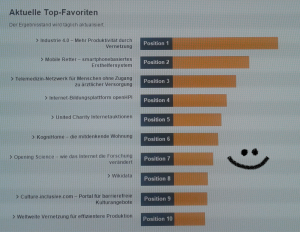Benedikt Fecher, Sascha Friesike and Marcel Hebing in an PLOS article on what drives data sharing in academia.
We show that this process can be divided into six descriptive categories: Data donor, research organization, research community, norms, data infrastructure, and data recipients. Drawing from our findings, we discuss theoretical implications regarding knowledge creation and dissemination as well as research policy measures to foster academic collaboration. We conclude that research data cannot be regarded as knowledge commons, but research policies that better incentivise data sharing are needed to improve the quality of research results and foster scientific progress.

